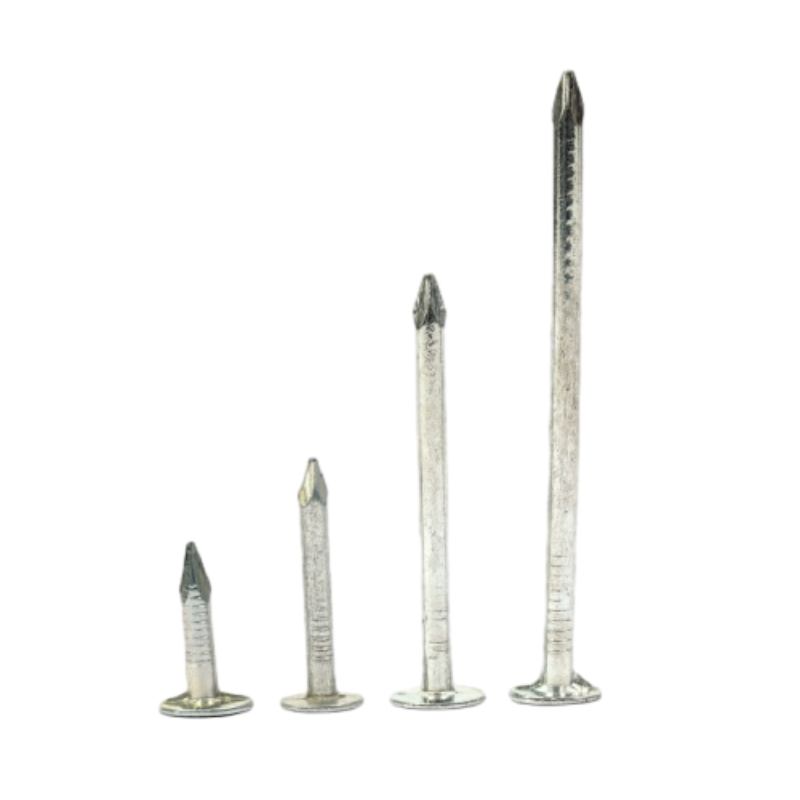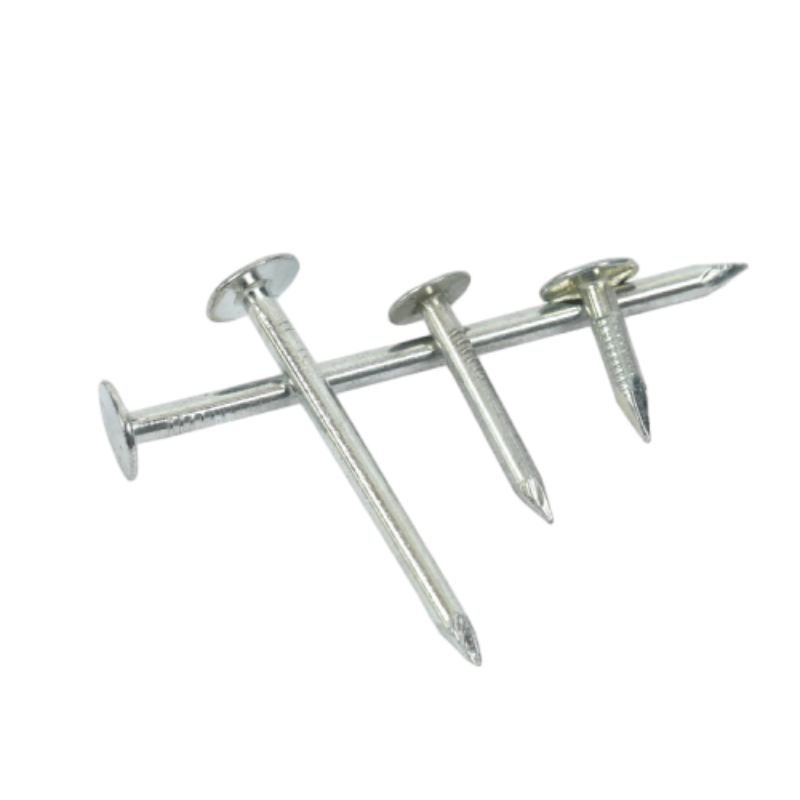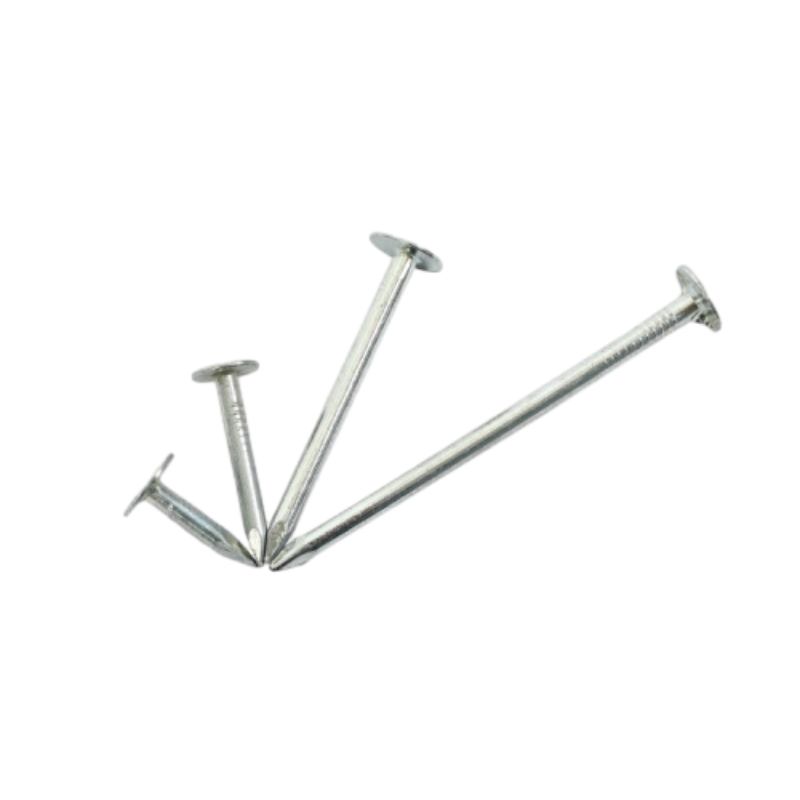Clout Nails: AI Custom Designs with GPT-4 Turbo | Durability & Style
Clout nails remain a cornerstone fastening solution across construction, joinery, roofing, and insulation industries. Widely recognized for their distinctive large, flat heads and unparalleled holding power, clout nails continue to evolve with advanced manufacturing, diversified applications, and strict adherence to international standards.
In this guide, you will discover the industry’s latest trends, technical parameters, competitive product insights, custom project solutions, and authoritative case studies for clout nails – with a special emphasis on the Galvanized Iron Wire Clout Nails product line.
Industry Trends: The Expanding Market of Clout Nails

Product Specifications: Clout Nails Standard Parameter Table
| Parameter | Typical Value | Options/Range | Standard |
|---|---|---|---|
| Material | Galvanized Iron Wire | Black Steel, Stainless, Brass | ISO 898, ANSI B18.5 |
| Head Type | Flat, Large-Diameter | Umbrella, Domed | ANSI B18.5 |
| Shank Type | Smooth, Ringed | Twisted, Barbed | ISO 1629-2 |
| Length (mm) | 20 – 50 | 10 – 100 | EN 10230-1 |
| Diameter (mm) | 2.5 | 1.5 – 4.0 | EN 10230-1 |
| Corrosion Resistance | High | Standard, Extra Galvanized, Black Phosphate | ISO 9227 |
| Head Diameter (mm) | 8 (standard) | 5 – 13 | Manufacturer Spec |
Manufacturing Process of Clout Nails
- Wire Drawing: Premium low-carbon iron wire is drawn through calibrated dies for strict gauge consistency.
- Nail Cutting: Automated cutters shear wires to precise lengths, ensuring uniform shank and tip profile.
- Head Formation: A CNC-press flattens heads, strictly controlling diameter and thickness for optimal holding power.
- Galvanizing: Nails are hot-dipped or electro-galvanized per ISO 1461 standards to ensure >220g/m² zinc layer, tested against ASTM B117 salt spray (≥48 hours).
- Inspection & Sorting: Each batch undergoes dimensional inspection, XRF coating check, tensile shear test and batch marking, meeting ANSI B18.5 tolerances.

Technical Indices & Performance Data for Galvanized Iron Wire Clout Nails
The following data highlight representative technical features, durability, and clout nails performance for construction, sheet metal, and insulation uses.
| Feature | Galvanized Clout Nails | Black Clout Nails | Stainless Steel Clout Nails |
|---|---|---|---|
| Material | Low carbon steel, hot-dip galvanized | Black mild steel | 304/316L Stainless |
| Corrosion Resistance | High (Salt spray 48-96hr) | Moderate (Prone to rust over time) | Excellent (Over 1200hr salt spray) |
| Application | Roofing, sheeting, timber | Pallets, joinery, packaging | Marine, chemical plant, food |
| Coating | Zinc layer ≥ 200g/m² | Black oxide | None |
| Available Shank | Smooth, Ringed | Smooth | Smooth, Twisted |
| Size Range (mm) | 20 - 50 | 10 - 75 | 15 - 100 |
| Head Diameter | 8.0 ± 0.1 | 7.8 ± 0.2 | 9.0 ± 0.1 |
| Cost Index | $ | $ | $$$ |
- Roofing & Sheet Fixing 38%
- Timber/Carpentry 29%
- Packaging/Palletizing 18%
- Fencing / Landscaping 15%
Application Scenarios & Advantages: Where Clout Nails Excel
- Roofing & Sheet Fixing: The broad flat head distributes pressure, crucial for bitumen/felt roofs to prevent tear-through. The zinc coating blocks corrosion in harsh weather.
- Timber Framing, Joinery, and Carpentry: Small clout nails offer neat, flush fixings on thin sections or decorative work where minimal head projection is key.
- Felt Nails/Felt Application: Special felt nails with extra-large heads enhance grip and wind resistance on underlayment layers.
- Pallets, Cases, Furniture: Used for pallet cleats due to strong retention and resistance to vibration loosening.
- Landscaping, Fencing, and Sidings: Clout nails are the fastener of choice when attaching wire mesh, batten boards, or cement sidings in outdoor projects.

When a European EPC company retrofitted 15,000m² of roofing for solar panel installation, clout nails with ringed shank and 250g/m² zinc coating were preferred over screws or staples. Result: zero corrosion or uplift after 18 months of exposure, despite severe freeze-thaw cycles. Project Lead Feedback: “Switching to galvanized clout nails cut hardware cost by 26% and reduced install time by 37% vs screws.”
Manufacturer Profile & Industry Authority
- Annual Output: 13,500+ tons of clout nails (multiple alloys/sizes)
- Key Certifications: ISO 9001:2015, SGS material trace
- Partner Brands: Saint-Gobain, Knauf, OBI Group
Custom Solutions, Delivery & Support
-
Specification Options:
- Head type/diameter: standard, umbrella, jumbo (5–13mm)
- Shank: smooth, ring shank, twisted for higher pulldown
- Finish: electro/HDG zinc, black oxide, colour-painted (RAL)
- Packing: bulk cartons 20kg, small blister retail, custom logo bags
- Delivery: Typical lead time 12–18 days for up to 2x40' HQ container111 lots; full batch test reports, export docs, CO/FORM E on request.
- Warranty & Support: 5–8 year anti-rust service warranty. Dedicated tech team available for application feedback & quick quotations.
Frequently Asked Questions (FAQ)
Conclusion
As industries move towards more efficient, sustainable fastening methods, clout nails – especially those made from galvanized iron wire – remain an exceptional solution due to their reliability, anti-corrosive toughness, and universal applicability. Whether specifying for roofing, packaging, or advanced construction assemblies, understanding precise technical, application, and sourcing parameters is vital for maximizing performance and cost efficiency.
For further technical discussions, procurement protocols, or custom integration case studies, please visit the Five Star Metals Galvanized Iron Wire Clout Nails product portal.
• Allied Market Research – Global Fasteners Market 2023
• Screwfix Pro Forum – Clout Nails: Stainless vs Galvanized (Real Applications)
• Cleveland State University – Comparative Corrosion Performance of Fasteners in Roofing
• ISO 898-1:2013 – Mechanical properties of fasteners
• Five Star Metals – Galvanized Iron Wire Clout Nails
-
Types and Uses of Common Nails in Construction
NewsJul.31,2025
-
The Transformative Role of Square Wire Mesh in Contemporary Architecture
NewsJul.31,2025
-
The Essential Role of Razor Wire in Modern Perimeter Security
NewsJul.31,2025
-
Installation Guide for Hexagonal Wire Netting Fencing
NewsJul.31,2025
-
How to Properly Use Rebar Wire Ties for Stronger Concrete Structures
NewsJul.31,2025
-
Creative and Decorative Uses of Barbed Wire in Design
NewsJul.31,2025














